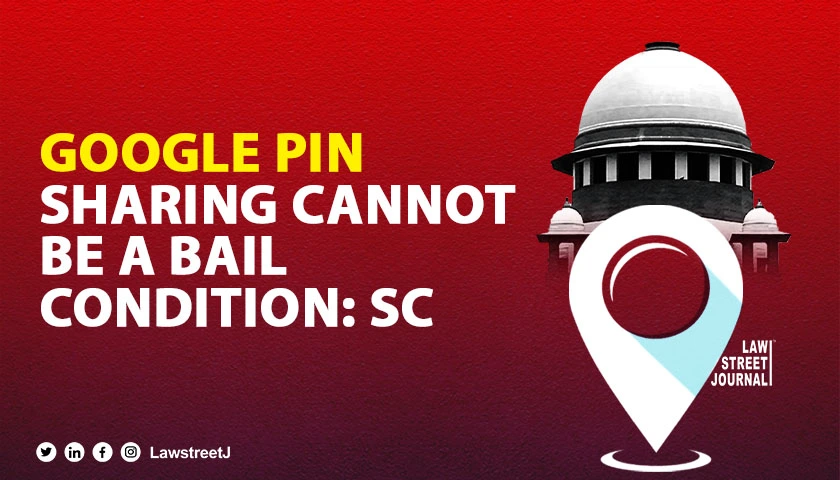NEW DELHI: The Supreme Court on Monday said that courts cannot order an accused to share his Google PIN location with the Investigating Officer as a condition for the grant of bail, in a decision which would protect right to privacy.
A bench of Justices Abhay S Oka and Ujjal Bhuyan said, "There can't be bail condition defeating the very objective of bail. There can't be a baill condition enabling the police to constantly track the movement of the accused persons".
The court set aside such a bail condition imposed by the Delhi High Court, requiring the accused to share the Google Maps PIN in his mobile device with the investigating officer, when the accused is enlarged on bail.
While noting that there cannot be bail conditions that defeat the purpose of granting bail, the bench also relaxed a bail condition that required a Nigerian national to obtain an assurance from his Embassy that they would not leave India.
The appeal was filed by Frank Vitus in a case registered under the Narcotic Drugs and Psychotropic Substances (NDPS) Act.
The matter related to whether a bail condition requiring an accused to drop a pin on Google Maps for the investigating officer to access his location infringed upon a person's right to privacy.
During the course of the hearing, the apex court had earlier observed that the condition of sharig Google PIN location sharing as a bail condition is hit by the right to privacy guaranteed under Article 21 of the Indian Constitution. "It cannot be a bail condition. We agree that there are two instances where this Court has done it, but it cannot be a condition for bail," the Court had said.
The Supreme Court in its earlier order on February 23 had asked Google India to file a detailed affidavit explaining the technical aspects of dropping a PIN in the context of putting it as a condition of granting bail to an accused person.
In 2017, a nine-judge Constitution bench in its landmark verdict had unanimously declared that the right to privacy was a fundamental right under the Constitution.
The court earlier also sought a detailed affidavit from Google India, and wanted to know from it about the technical aspects of it.
The Ministry of Electronics and Information Technology (Meity) has given an affidavit and has suggested that as far as working of the Google PIN is concerned, its appropriate if the information is sought from Google India Pvt Ltd," the court had earlier said.
The top court then clarified in its it did not implead Google India as a party and or respondent in the case but only sought information on the working of the Google PIN.
During one of its hearings, the top court, however, observed and remarked that the condition of sharing of Google PIN may prima facie offend the privacy rights of the accused, as guaranteed under the Indian constitution.
The apex court also had earlier observed that when once an accused has been enlarged on bail by courts with the conditions set by it, it might be improper to know and track his or hers whereabouts, as it might hamper their right to privacy.

















